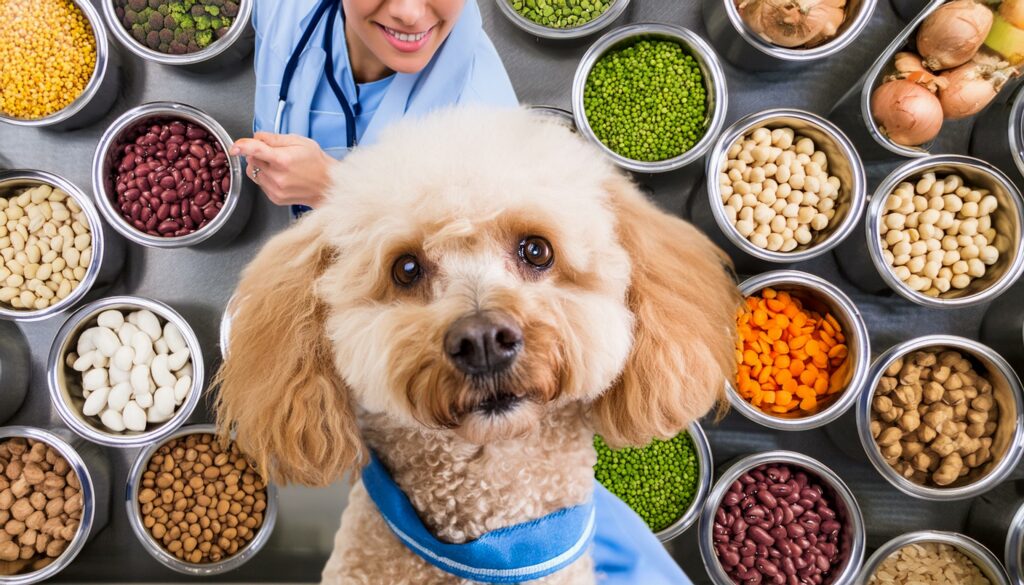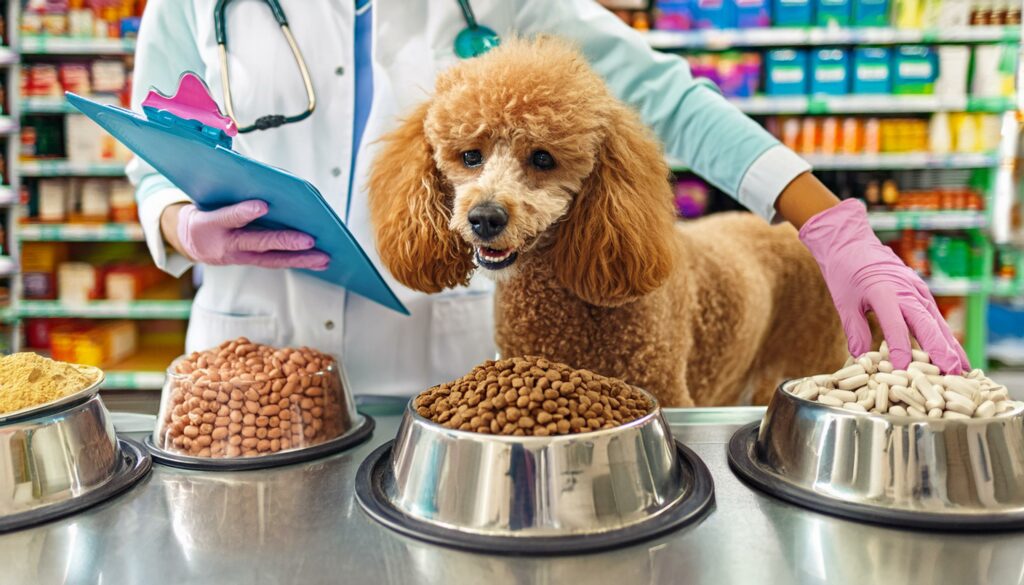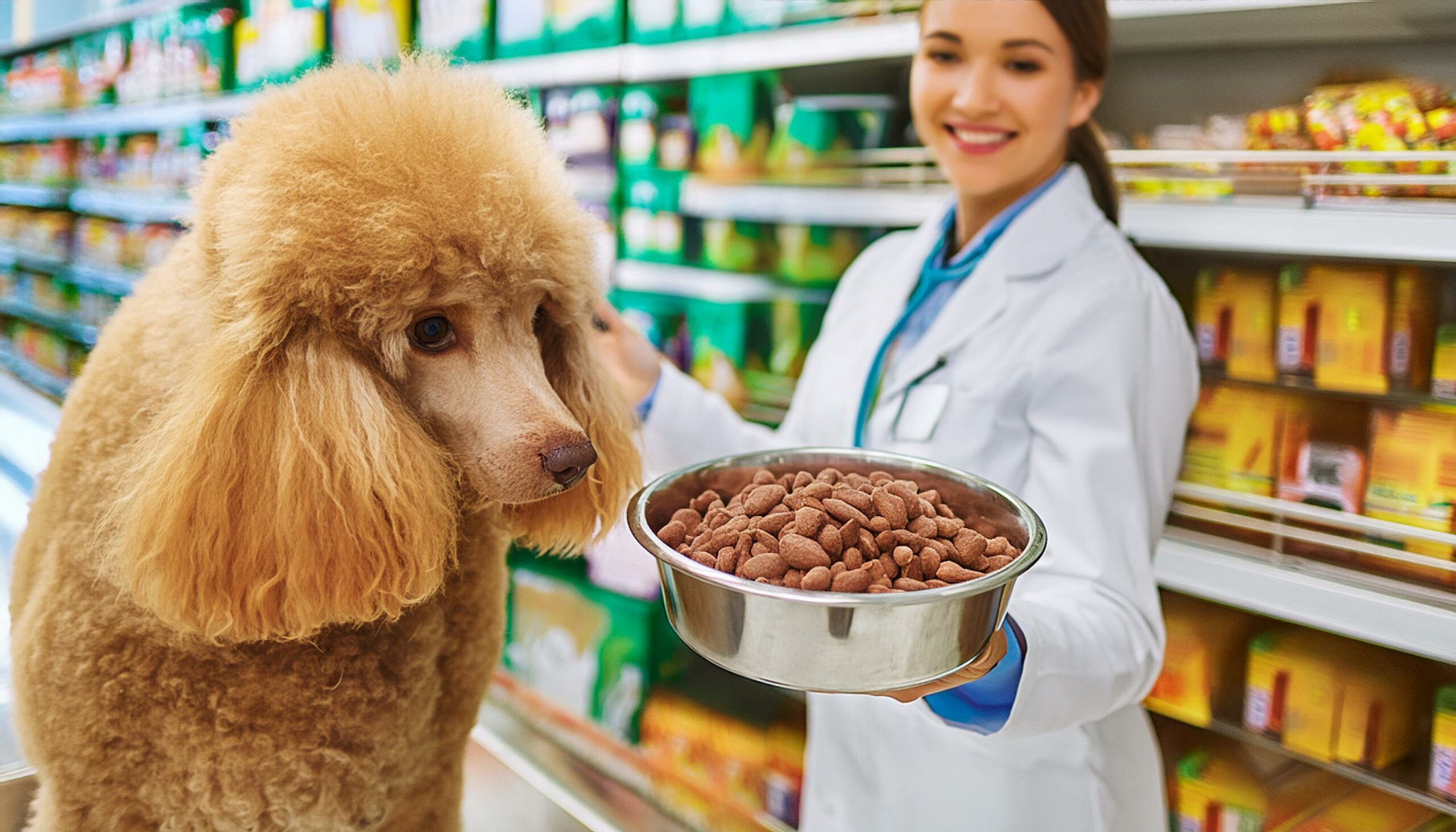Poodles, with their graceful appearance and intelligent demeanor, are cherished companions in many households. As caring pet owners, it’s crucial to provide them with a balanced diet that meets their unique nutritional requirements. One common question that arises among poodle owners is whether wet food is a suitable option for their furry friends. In this comprehensive guide, we’ll explore the pros and cons of wet food for poodles, factors to consider before incorporating it into their diet, and expert recommendations to help you make an informed decision for your beloved pet.
Understanding Poodle Dietary Needs
Before delving into the suitability of wet food for poodles, it’s essential to understand their specific dietary needs. Poodles come in various sizes, including toy, miniature, and standard, each with its distinct characteristics and nutritional requirements. Regardless of size, poodles require a diet rich in protein, vitamins, and minerals to support their energy levels, maintain a healthy coat, and promote overall well-being.
Pros and Cons of Wet Food for Poodles
Benefits of Wet Food
Wet food offers several advantages for poodles:
- Higher moisture content: Wet food contains a higher percentage of water, which can help keep poodles hydrated, especially those prone to urinary issues.
- Enhanced palatability: The aroma and texture of wet food often appeal to picky eaters, encouraging them to consume an adequate amount of nutrients.
- Digestibility: The soft texture of wet food can be easier on the digestive system, making it suitable for poodles with sensitive stomachs or dental problems.
Drawbacks of Wet Food
However, wet food also has its disadvantages:
- Short shelf life: Once opened, wet food must be refrigerated and consumed within a few days to prevent spoilage, which can be inconvenient for some pet owners.
- Cost: Wet food tends to be more expensive than dry kibble, potentially impacting the long-term affordability of feeding a poodle.
Factors to Consider Before Feeding Wet Food

Before switching your poodle to a wet food diet, consider the following factors:
- Age: Puppies, adult poodles, and seniors have different nutritional requirements, so it’s essential to choose a wet food formula appropriate for your poodle’s life stage.
- Health conditions: Poodles with specific health issues may benefit from wet food formulations designed to address their unique needs, such as those with allergies or digestive sensitivities.
- Activity level: Highly active poodles may require a higher calorie intake, which can be achieved through a combination of wet and dry food.
Selecting High-Quality Wet Food
When selecting wet food for your poodle, prioritize quality ingredients and nutritional adequacy. Look for formulations that list real meat as the primary ingredient, devoid of artificial preservatives, colors, and fillers. Avoid products containing excessive amounts of carbohydrates, as poodles thrive on a protein-rich diet.
Transitioning to Wet Food
If you decide to transition your poodle to wet food, do so gradually to prevent digestive upset. Start by mixing small amounts of wet food with their current diet, gradually increasing the proportion over several days. Monitor your poodle for any signs of intolerance or allergic reactions during the transition period.
Alternatives to Wet Food
While wet food can be a suitable option for poodles, it’s not the only choice available. Dry kibble formulated specifically for poodles offers convenience and dental benefits, promoting chewing action and reducing plaque buildup. Additionally, some pet owners opt for homemade recipes using fresh, wholesome ingredients to ensure complete control over their poodle’s diet.
Tips for Feeding Wet Food to Poodles
To optimize your poodle’s diet with wet food, consider the following tips:
- Measure portions according to your poodle’s weight and activity level to prevent overfeeding.
- Establish a consistent feeding schedule to regulate appetite and prevent grazing behavior.
- Incorporate wet food as part of a balanced diet, complemented by occasional treats and dental chews for oral health.
Addressing Common Concerns and Misconceptions
Dispelling common concerns and misconceptions surrounding wet food can alleviate apprehensions among poodle owners. While some may worry about dental health or nutritional adequacy, providing accurate information and professional recommendations can help clarify misunderstandings and promote confidence in feeding wet food to poodles.
Expert Recommendations

Veterinarians and pet nutritionists emphasize the importance of a balanced diet tailored to each poodle’s individual needs. Consulting with a professional can provide valuable insights and recommendations based on your poodle’s age, health status, and lifestyle, ensuring optimal nutrition and overall well-being.
Real-Life Experiences
Many poodle owners have shared positive experiences with wet food diets, citing improvements in coat quality, energy levels, and overall health. Testimonials and success stories serve as anecdotal evidence of the benefits of incorporating wet food into a poodle’s diet, reinforcing its potential as a nutritious and enjoyable meal option.
Conclusion
In conclusion, wet food can be a suitable dietary option for poodles when chosen and fed responsibly. While it offers advantages such as enhanced palatability and digestibility, it’s essential to consider factors such as age, health conditions, and dental health before making the switch. By selecting high-quality formulations, transitioning gradually, and monitoring your poodle’s response, you can provide them with a balanced and nutritious diet that supports their health and happiness.
